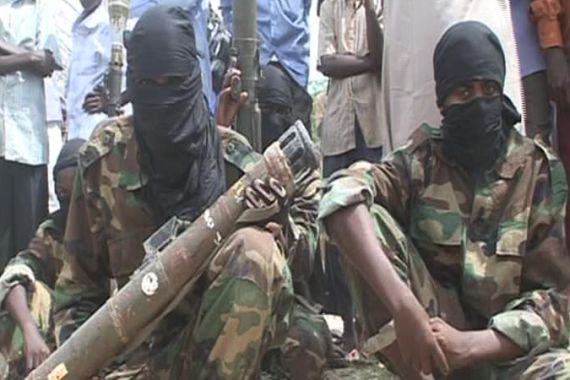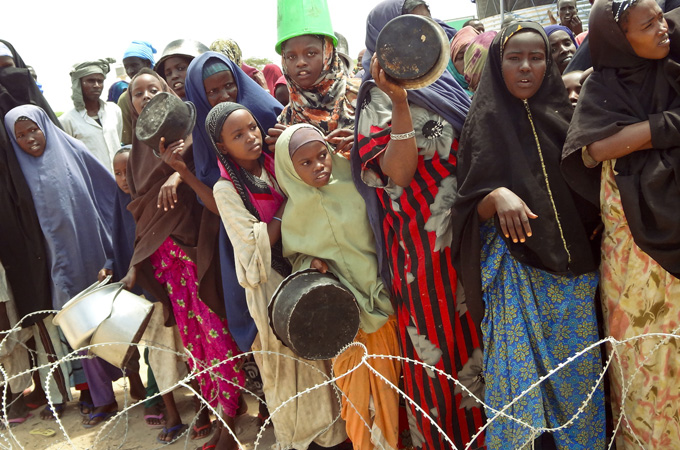Somali group bans aid organisations
Al-Shabab blacklists NGOs for “illicit activities and misconducts”, putting thousands of refugees at risk of starvation.

 |
| Al-Shabab’s ban is likely to harm Somalis already suffering from drought and famine [EPA] |
The Somali armed group al-Shabab has banned 16 aid organisations – including a half-dozen UN agencies – from central and southern Somalia, a decision likely to harm Somalis already suffering from drought and famine.
In a statement on Monday, the group said that a “meticulous yearlong review and investigation” had been carried out by what it called the Office for Supervising the Affairs of Foreign Agencies.
Keep reading
list of 4 itemsAfter the Hurricane
World’s coral reefs face global bleaching crisis
Why is Germany maintaining economic ties with China?
|
“This brazen act prevents these organisations from providing lifesaving assistance.” – Ban Ki-moon, UN secretary general |
The office documented in a report “the illicit activities and misconducts of some of the organisations”.
Accusations levied against the aid agencies included the misappropriation of funds, collection of data, and work with “international bodies” to promote secularism, immorality and the “degrading values of democracy in an Islamic country”.
Among those banned were UNICEF, the World Health Organisation, UNHCR, the Norwegian Refugee Council, the Danish Refugee Council, German Agency For Technical Co-operation (GTZ), Action Contre la Faim, Solidarity, Saacid and Concern.
In line with al-Shabab’s statement, witnesses reported on Monday that armed men entered aid offices and seized equipment in the towns of Beldweyne and Baidoa.
Ban Ki-moon, the UN secretary general, condemned the action – calling it a “brazen act” that “prevents these organisations from providing lifesaving assistance”.
He demanded that al-Shabab “vacate the premises and return seized property to the affected agencies and NGOs”.
Risk of starvation
Al-Shabab’s ban on aid groups falls in line with its skeptical view of the outside world, but will worsen the suffering of the hundreds of thousands of Somalis who have come to depend on aid.
The Horn of Africa region is experiencing its worst famine since 1991-92.
A year without rain has wiped out crops and animal herds in southern Somalia, killing tens of thousands of people the last six months and forcing tens of thousands more to flee as refugees.
Because of its policies limiting the work of aid groups in its territory – especially the work of the World Food Program – areas under its control were declared famine zones by the UN in July.
Some of those famine declarations have since been downgraded, but the UN says 250,000 people still face immediate risk of starvation.
Al-Shabab, which has been blamed for a recent string of tourist kidnappings, has been under increasing military pressure the last year.
African Union forces in Mogadishu have mostly pushed the group out of the capital. Last month, Kenyan forces moved in, opening a second conflict on the group’s southern flank.
Earlier this month witnesses say Ethiopian troops moved in from the west, opening a third front.